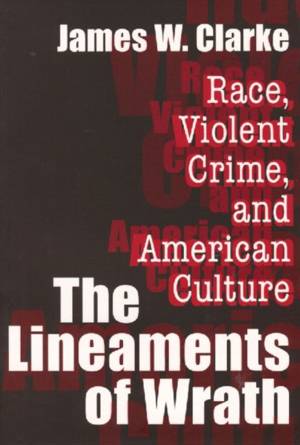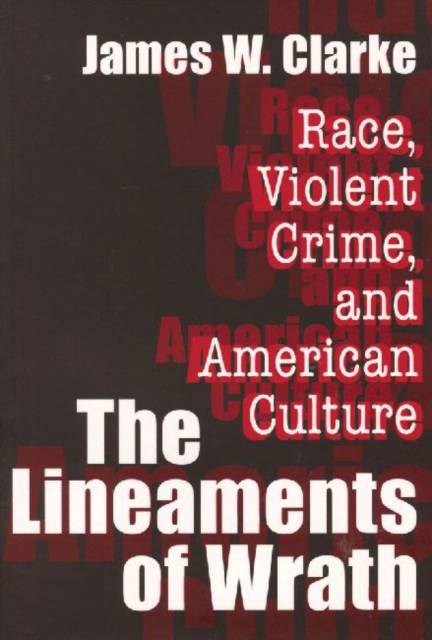
- Afhalen na 1 uur in een winkel met voorraad
- Gratis thuislevering in België vanaf € 30
- Ruim aanbod met 7 miljoen producten
- Afhalen na 1 uur in een winkel met voorraad
- Gratis thuislevering in België vanaf € 30
- Ruim aanbod met 7 miljoen producten
Omschrijving
Violence has marked relations between blacks and whites in America for nearly four hundred years. In The Lineaments of Wrath, James W. Clarke draws upon behavioral science theory and primary historical evidence to examine and explain its causes and enduring consequences.
Beginning with slavery and concluding with the present, Clarke describes how the combined effects of state-sanctioned mob violence and the discriminatory administration of "race-blind" criminal and contract labor laws terrorized and immobilized the black population in the post-emancipation South. In this fashion an agricultural system, based on debt peonage and convict labor, quickly replaced slavery and remained the back-bone of the region's economy well into the twentieth century.
Quoting the actual words of victims and witnesses--from former slaves to "gangsta" rappers--Clarke documents the erosion of black confidence in American criminal justice. In so doing, he also traces the evolution, across many generations, of a black subculture of violence, in which disputes are settled personally, and without recourse to the legal system. That subculture, the author concludes, accounts for historically high rates of black-on-black violence which now threatens to destroy the black inner city from within. The Lineaments of Wrath puts America's race issues into a completely original historical perspective. Those in the fields of political science, sociology, history, psychology, public policy, race relations, and law will find Clarke's work of profound importance.
Specificaties
Betrokkenen
- Auteur(s):
- Uitgeverij:
Inhoud
- Aantal bladzijden:
- 339
- Taal:
- Engels
Eigenschappen
- Productcode (EAN):
- 9780765808738
- Verschijningsdatum:
- 31/08/2001
- Uitvoering:
- Paperback
- Formaat:
- Trade paperback (VS)
- Afmetingen:
- 149 mm x 240 mm
- Gewicht:
- 526 g

Alleen bij Standaard Boekhandel
Beoordelingen
We publiceren alleen reviews die voldoen aan de voorwaarden voor reviews. Bekijk onze voorwaarden voor reviews.











